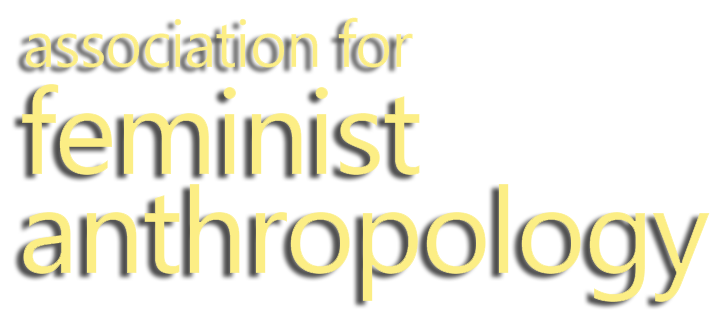Issue 1.1 The “F” Word: Anthropology’s Feminisms
For the inaugural issue of Feminist Anthropology, we invite submissions that honor the heterogeneous inheritance of feminist orientations within feminist anthropology, embracing the uneasy, the obscene, the liberatory, the divisive, and the courageous. We seek contributions that reflect the ways in which feminist anthropology has been a generative and creative engine for innovative and paradigm-shifting research.
Feminist anthropology brings many critical scholarly communities into conversation, drawing on various genealogies, and traditions. A significant number of feminist practices engage in transformative work that imagine multiple futures. As a critical scholarly practice, feminist anthropology has at times been generative, divisive, provocative, courageous, and innovative. It has not and, likely, will never singularly describe a particular kind of anthropological work as its strength lies in the proliferation of heterogeneous critical perspectives, theories and methodologies. For “while gender and sexuality remain crucial themes in feminist scholarship, what it means to be a feminist anthropologist and engage in feminist ethnography remain unsettled” (Backe 2016). In our inaugural issue, we embrace and celebrate the unsettled nature of feminist anthropology.
As a liberatory practice, feminism has encapsulated a range of political and analytical praxes. Some Black feminisms, for example, have sought to construct and broaden the canon while deconstructing institutionalized racism and sexism (McClaurin 2001). Reflections on the relation of feminism to post-coloniality have called forth a feminism that needs “to be attentive to borders while learning to transcend them” (Mohanty 2003). Other explorations of liberatory practice have argued against “delivering judgments on what counts as a feminist versus an antifeminist practice,” refusing to distinguish between a subversive and non-subversive act (Mahmood 2012).
Across anthropology’s many domains, feminism has carried various inflections, taking many forms within archaeological, ethnographic, biological and linguistic work, despite the fact that the moniker “feminist,” has been marked as an obscenity or suspect category. Feminisms take on distinctive significance under oppressive state, local, familial, and institutional regimes. What are the obligations of scholarly communities when feminisms are criminalized, repressed, banned or excluded? For the inaugural issue, we seek two types of submissions that consider anthropology’s feminisms taking account of our particular historical, political, and social contexts:
1) Short essays under 3000 words in length will be featured under the theme of “Situating Research.” These essays may take on a particular problematic within the author’s anthropological field of scholarship, engaging a pressing question, or taking up a particular feminist genealogy and accounting for the present state of feminist scholarship.
2) We also seek research articles between 4000-6000 words in length (including bibliography and citations). Research articles should be grounded in a particular research project and focused on evidence, whether it is linguistic, somatic, ethnographic, material, or practice-based. How does this project demonstrate the ways in which anthropology has benefitted from feminist analysis and insight? How does the work contribute to on-going feminist research, and how is this particular to anthropological scholarship? Drawing on discussions across the fields, and across generations of scholars with a range of institutional affiliations, we invite scholars to contribute to these conversations.
The Scholar One submission is located at https://mc.manuscriptcentral.com/americananthro-afa. Interested parties may send queries to editors Dána-Ain Davis (dana.davis@qc.cuny.edu) and Sameena Mulla (sameena.mulla@marquette.edu). Manuscripts will be due August 15th, and the first issue will be released May 2020.
